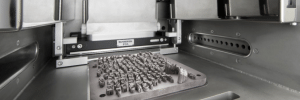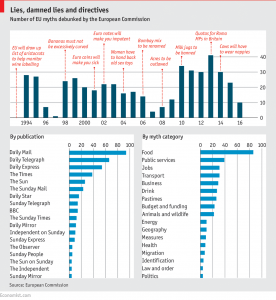UK voters, by a narrow margin, have elected to leave the European Union. The historic decision to leave, or Brexit, has generated uncertainty over the future of the British economy and concern within the scientific community. One commentator cites manufacturing policy, including 3D printing, as paving the way for Brexit. The repercussions of last week’s referendum have spread rapidly throughout global markets and given the international nature of trade and industry, major companies operating in the 3D printing industry have expressed opinions about the UK’s likely place in their future plans.
Business as usual
Innovate UK is a public body set up to foster economic growth and stimulate innovation. Reporting to the Department for Business, Innovation and Skills (BIS) the agency receives approximately $500 million in funding but operates at “arms-length” from the government. When asked about the impact of Brexit by 3DPI an Innovate UK spokesperson said, “We are continuing our business as usual work, supporting innovative businesses right across the country. We are working with colleagues in Government and beyond to assess next steps and will communicate further with our customers about any impact on our work as soon as we are able.”

Renishaw employs approximately 2,700 people and is headquartered in Wotten-under-Edge, Gloucester. The company has more than 40 years experience in the aerospace and engineering industry and has grown through sustained innovation with numerous patented inventions. Their 3D printers include the AM250 and the EVO system for industrial additive manufacturing. A spokesperson said, “We previously communicated our position that we believed that remaining in the European Union would be the best scenario for Renishaw, but the British electorate has made its decision regarding Brexit and as an organization we fully respect this decision.”

While the referendum result is evident of voter opinion it does not immediately remove the UK from the EU. As Renishaw says, “the UK is still today a member of the EU and will remain so for at least the next two years whilst a withdrawal agreement is negotiated.” The leaders of EU countries such as France and Germany are keen for the decision to be implemented rapidly so as to avoid uncertainly and the perpetuation of an unstable economic environment. However, this is dependent upon British politicians invoking articles from the treaty of Lisbon. Revelations by members of the Leave campaign indicate that no plan was drawn up in advance of the vote and therefore UK exit may take place over a period much longer than 2 years.
In the long term Renishaw, “believe that due to Brexit we will most likely face higher costs and additional regulation.” Despite this they, “remain confident of our prospects for the future.”
$14 billion fund under threat
The Airbus Group is an interesting example of pan-european economic collaboration. Headquartered in The Netherlands the multinational aerospace business is formed from German, French, Spanish and British companies. The group was one of the first to register as a public company under European corporate law as a societas Europaea. Airbus have worked to industrialize 3D printing into production for more than 5 years. In the UK the company employs approximately 4,000 at its facilities in Filton near Bristol. Airbus announced, “We will study the longer term consequences of this decision on the competitive environment.”
Disappointed by the result, an Airbus spokesperson said, “We will work constructively with the UK Government to minimise any impact on our operations. While we are disappointed, clearly we will continue to support our workforce and operate our UK facilities.”
Those in the UK scientific community expressed themselves in much stronger language. The European Research Council (ERC) budget is over $14 billion and supports, “high-risk, high-reward proposals that may revolutionise science and potentially lead to innovation if successful.” Such frontier, or basic research, is often underfunded by industry because of its long-term nature and lack of immediate commercial application. For this reason funding from government or large bodies such as the EU is necessary. The funding body Research Councils UK (RCUK) has a budget of just under $4 billion.
Peter Higgs, Noble Prize winner for work on the Higgs-Boson particle, said, “It’s a disaster. We are so heavily embedded in Europe in terms of the funding, it’s going to be very difficult to sort out.” Between 2007 and 2013 the EU supported more than 60 additive manufacturing projects providing more than $175 million in funding.
There are fears that Brexit may lead to a “brain-drain” with top researchers and scientists leaving the UK to pursue their work in better funded environments. Additive manufacturing researcher Shawn Moylan at the U.S NIST says UK scientists can apply for their foreign researcher program. An executive director of The Future of Research program, also in the U.S, said, “a brain drain is inevitable.”

Always look on the bright side of life
With the UK’s currency falling in value as a result of the vote, others tried to find humor in the situation. “On the bright side, my EU grant is paid in Euros so our consumables budget is getting bigger by the second (in GBP)”, commented scientist Anthony Wilson on twitter. As reported by The Economist, media stories featuring the EU are often less than accurate. When British tabloid (see featured image), The Sun, reported the Queen supported Brexit it was forced to issue a correction several days later as the story was false.
A weaker pound is likely to stifle certain 3D printing related activities. For companies who import material such as metal powder, filament or resin or purchase machines from outside the UK prices will be higher. Conversely for those businesses that export from the UK their customers may find that prices are lower. Uncertainty is the biggest risk here though as many are likely to defer major investment or purchasing decisions until clarity over the future of the UK’s position is reached.
Within all the speculation and concern over the future of additive manufacturing in the UK generated by the Brexit one commentator took a different perspective. Rather than Brexit impacting science and the economy, what if the reverse were true. In effect additive manufacturing had lead to this situation. This a view expressed in a column published by the Daily Sabah, an English language newspaper based in Turkey. The author, Cemil Ertem, argues that, “sharp transformation in all areas of the economy” by Industry 4.0 (a cluster of technologies that includes additive manufacturing) have, “brought a German-centric EU up for discussion and paved the way for Brexit.” Ertem believes this, “means Britain is aware that the game is over.”
It remains to be seen if, and when, Britain will leave the EU and what form this will eventually take. The country is now entering unknown territory. Those who celebrated the result on Friday are likely beginning the week with hangovers and a sense of remorse as the reality begins to dawn, or not.


